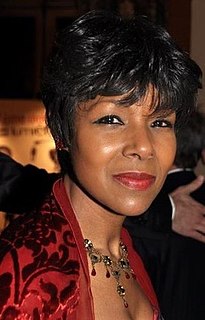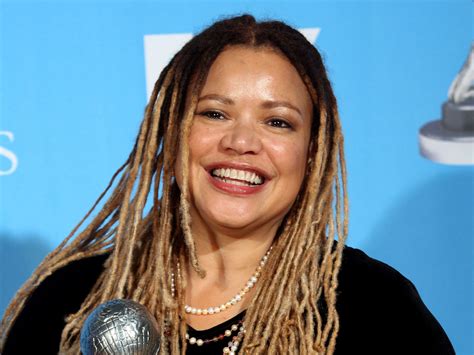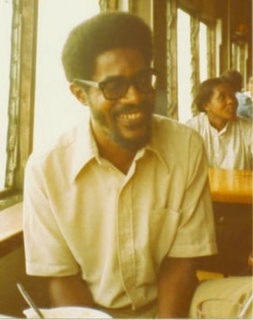A Quote by Euzhan Palcy
I wanted to make a black story about South Africa. Unfortunately, no producer in the United States would put one penny into a black story.
Related Quotes
Hateful material travels the globe. A few years ago, CNN, America's Der Sturmer, ran a story about Black parents being so low down that they abandoned their children and the children had to eat rats. I was at a University in Wisconsin at the time and the mother of a student from South Africa called to see whether the story was true. She had seen it all the way over there. The story was untrue. The children lied. CNN never corrected the story.
The United States imprisons a larger percentage of its black population than South Africa did at the height of apartheid. In Washington, D.C., our nation’s capitol, it is estimated that three out of four young black men (and nearly all those in the poorest neighborhoods) can expect to serve time in prison.
I would like to flood South Africa with black personages of all sorts of persuasions: writers, educators, businessmen, you name it. If you are black and have any clout at all, I would like to see you go to South Africa and look for yourself and come back and try to use the tools that you have at your command to try and help the brothers down there.
There is a problem in America. An Irish or Polish American can write a story and it's an American story. When a Black American writes a story, it's called a Black story. I take exception to that. Every artist has articulated to his own experience. The problem is that some people do not see Blacks as Americans.
In South Africa, being Chinese meant I wasn't white and I wasn't black. I trained in Baragwanath Hospital, the largest black hospital in South Africa. That was around 1976, the time of the Soweto Uprising, when police fired on children and students who were protesting. I was part of the group of interns who volunteered to treat them.
I wanted to pay homage to someone who was such an important literary figure in my life. I think Langston Hughes would be proud of the picture Black Nativity, yet it's a contemporary story about a family living in Harlem. I named the lead character Langston, put a little bit of poetry in there, and some Langston Hughes quotes, and, of course, his stage play, Black Nativity.
Black Nativity certainly lends itself to reinterpretation. It was kind of designed to be infused with the creativity of whoever is putting it on, and every performance is a little bit different. So, this is definitely my version of Black Nativity. It has its own story, which is a family story. Langston Hughes' Black Nativity informs it, and is contained within it.
Marcus Garvey was one of the first advocates of Black Power, and is still today the greatest spokesman ever to have been produced by the movement of Black Consciousness...He spoke to all Africans on the earth, whether they lived in Africa, South America, the West Indies or North America, and he made Blacks aware of their strength when united.




































